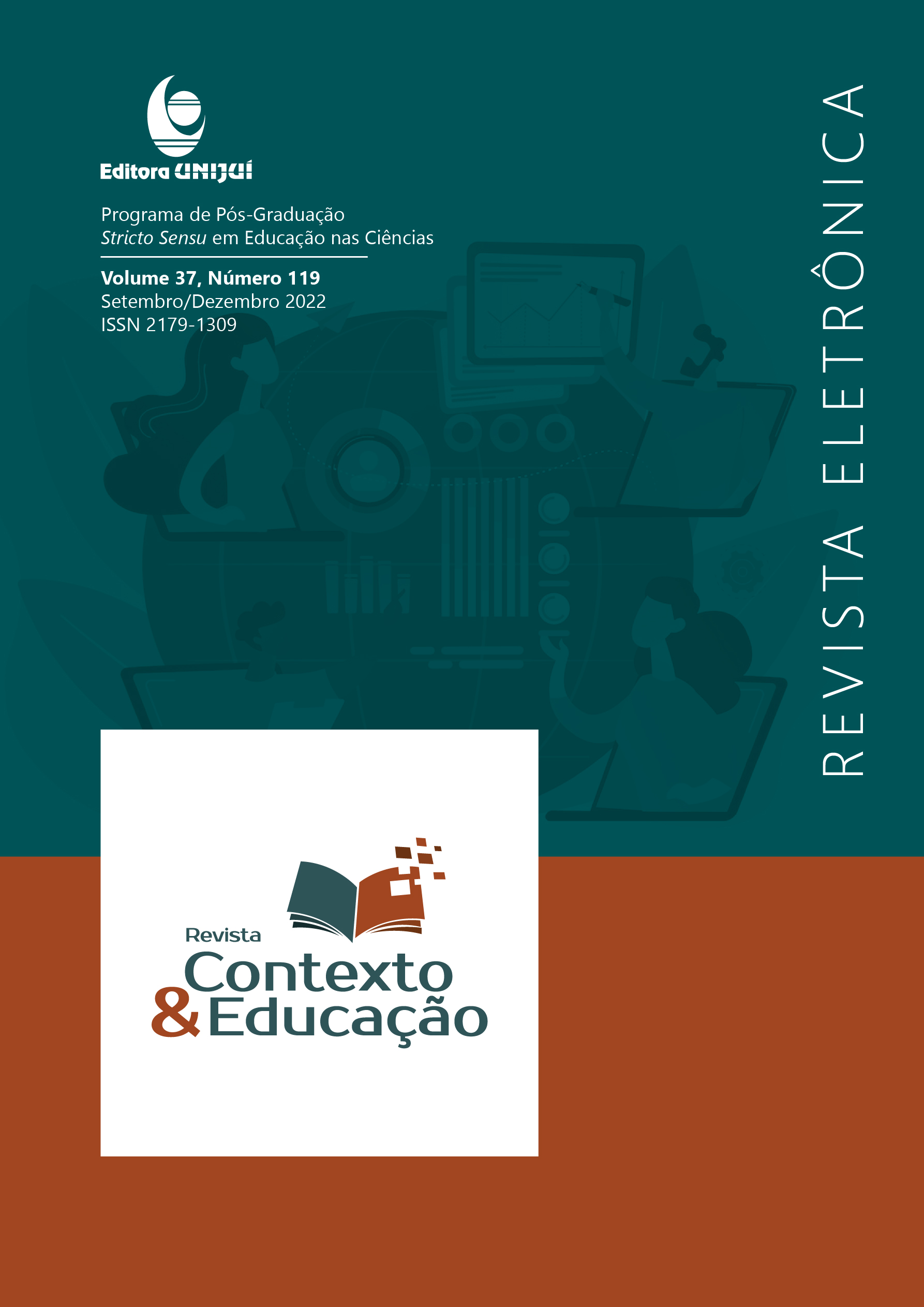Memories of professional and technological education in Campos dos Goytacazes, Rio de Janeiro: the school of Apprentices and Craftsmen in focus
DOI:
https://doi.org/10.21527/2179-1309.2022.119.13182Abstract
This article discusses the relationship between the childhood of the working class, at the beginning of the 20th century, with the duality, still persistent in the 21st century, between general education and Vocational and Technological Education (EPT). Through the Discursive Textual Analysis (ATD) of the Presidential Decree nº 7.566, of September 23, 1909, which creates the national network of EPT schools and photographs of the former Escola de Aprendizes Artífices de Campos dos Goytacazes, Rio de Janeiro, the This article seeks to answer the following guiding questions: How are childhoods portrayed in the history of the EPT, more precisely in the early 20th century? Is this treatment given to childhood related to the historical duality between propaedeutic training, for the elite, and professional training, for the poor? It can be seen that the EPT achieved a strong regenerative bias due to the ruling classes of the early 20th century considering the underprivileged of fortune ignorant and liable to the school of vice and crime. Thus, the treatment given to childhoods at the beginning of the 20th century reveals much of the persistent duality between knowing how to do and knowing how to think that still occurs in the 21st century.
Keywords: Professional and Technological Education. School of Apprentice Craftsmen. Childhoods of the Brazilian working class. Discursive Textual Analysis
Downloads
Published
How to Cite
Issue
Section
License
Copyright (c) 2022 Revista Contexto & Educação

This work is licensed under a Creative Commons Attribution 4.0 International License.
By publishing in Revista Contexto & Educação, authors agree to the following terms:
All works are published under the Creative Commons Attribution 4.0 International License (CC BY 4.0), which allows:
Sharing — to copy and redistribute the material in any medium or format;
Adaptation — to remix, transform, and build upon the material for any purpose, even commercially.
These permissions are irrevocable, provided that the following terms are respected:
Attribution — authors must be properly credited, a link to the license must be provided, and any changes made must be indicated.
No additional restrictions — no legal or technological measures may be applied that legally restrict others from doing anything the license permits.
Notices:
The license does not apply to elements that are in the public domain or covered by legal exceptions.
The license does not grant all necessary rights for specific uses (e.g., image rights, privacy, or moral rights).
The journal is not responsible for the opinions expressed in the articles, which are the sole responsibility of the authors. The Editor, with the support of the Editorial Board, reserves the right to suggest or request modifications when necessary.
Only original scientific articles presenting research results of interest that have not been previously published or simultaneously submitted to another journal with the same purpose will be accepted.
Mentions of trademarks or specific products are intended solely for identification purposes and do not imply any promotional relationship by the authors or the journal.
License Agreement (for articles published from October 2025): Authors retain the copyright to their article and grant Revista Contexto & Educação the right of first publication.


